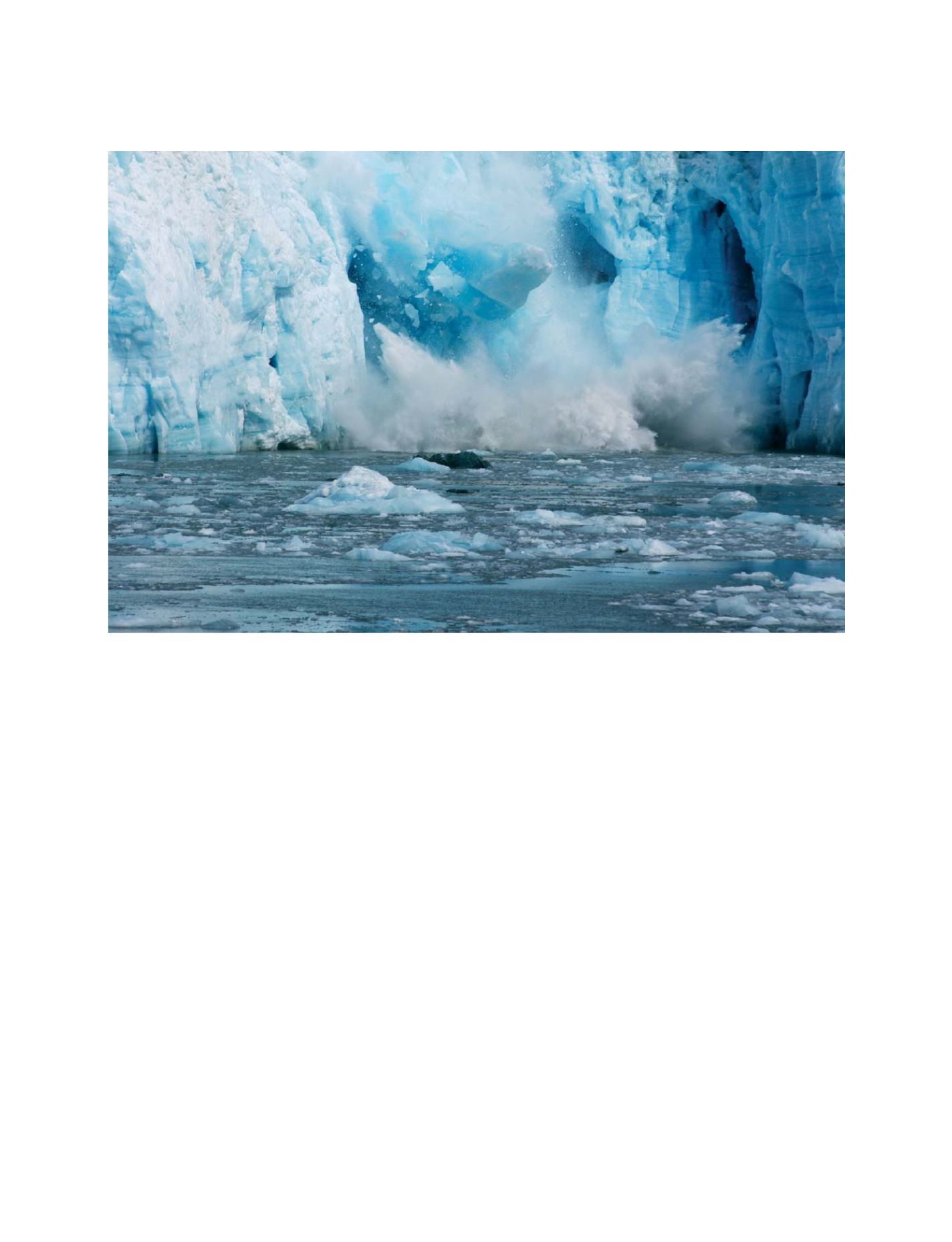

their implications for people, the climate and biodiversity. Due to
insufficient spatial coverage or inadequate monitoring capabilities,
some of the major unknowns about the water cycle include precip-
itation, soil moisture, evapotranspiration, groundwater, surface
runoff, storage in lakes and rivers, water quality, clouds and water
vapour, snow cover, and much more.
Harmonizing the various in situ and remote-sensing instruments
that monitor the water cycle, and integrating their data remains a
work in progress. Greater coordination is needed between the water-
cycle and water-resource-management communities, as well as
amongst national meteorological and hydrological services and the
agencies of the United Nations system. When this is achieved through
GEOSS over the coming few years, the full range of water resource
managers will have access to new and more powerful decision-support
tools that will completely change the way they do their jobs.
Weather
Improving weather information, forecasting and warning will reduce
the risks of extreme weather events while optimizing agricultural
yields, water management and many other vital outputs and services.
Weather forecasting is probably the most mature field of Earth obser-
vation, as suggested by the fact that the direct predecessor of the
World Meteorological Organization was founded over 130 years ago,
in 1873.
Led by the WMO and the national meteorological and hydrologi-
cal services that constitute its membership, global cooperation on
weather information has already contributed to the early
achievements of GEOSS. The critical next step is to
interlink weather data with the growing number of Earth
observation data sets now emerging in the fields of biodi-
versity, health, energy and elsewhere. This in turn will
greatly expand the range of uses to which weather infor-
mation and forecasts can be put.
Ecosystems
Improving the management and protection of terrestrial,
coastal and marine ecosystems will bring enormous soci-
etal, economic and, not least, environmental benefits.
Greatly expanded and harmonized Earth observations
are needed for both conservation and resource manage-
ment. However, due to the complexity of ecosystems
and the resulting challenges of monitoring them closely,
many gaps and weaknesses currently exist. The success-
ful implementation of GEOSS will dramatically change
this situation.
GEOSS will pursue this goal by facilitating the
production of spatial information on ecosystem
changes, conditions and trends. This information is
needed for confirming whether an ecosystem has the
capacity to deliver sustainable services (such as flood
control or sustainable timber harvests) and to meet
societal needs. Information needs to be presented in the
[
] 155
S
OCIETAL
B
ENEFIT
A
REAS
Weather and climate affect all societies and ecological systems, and improved knowledge of weather and climate changes
underpins many societal benefit areas
















